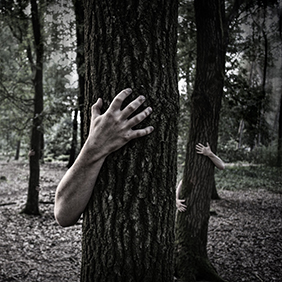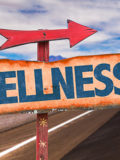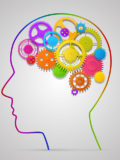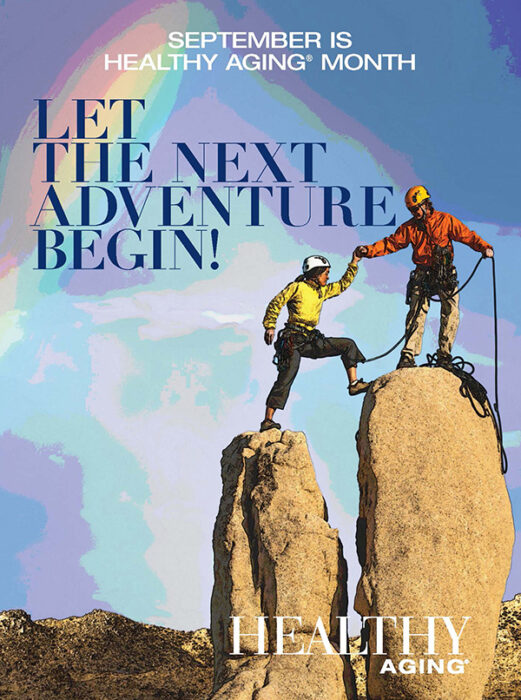
Photo: Unsplash, Simon Wijers
By Rachel Cavotta
Fear not, Halloween is just around the corner. For those who love candy, dressing in costumes or just being scared, this is their number one holiday.
Do you ever wonder why there’s something exhilarating about being scared? Why is it some love haunted houses, corn mazes and scary costumes?
What really draws us to the creepy, or even frightening, aspects of Halloween? Well, there are actually psychological reasons why we like to be scared.
It’s Your Personality
For some, the thrill of fear is just a part of who they are. In the early 1960s, Professor Marvin Zuckerman, Ph.D., a psychology professor at the University of Delaware, discovered that a person’s desire for adventure and thrill-seeking is a part of a high sensation-seeking personality trait which effects not only your behavior, but also the choices you make.
Additional research showed that high sensation-seeking affects a person’s tastes in activities, music, food, and movies. This may explain why certain people are drawn to scary movies and haunted houses as forms of entertainment.
Later, in the mid-1980s, Temple University psychologist Frank Farley and former American Psychological Association president created a personality model describing thrill-seeking personalities, or Big T personalities. The positive Big T personality thrive on experiences such as skydiving or mountain climbing, considering the thrill exciting instead of frightening.
When Big T personalities want to find excitement during the Halloween season, they will not be going trick-or-treating. Rather, they will be seeking out the scariest haunted house attractions to satisfy their need for a thrill or adventure.
Horror Films…What’s the Appeal?
Horror movies are a staple to the Halloween experience, but why do we like them so much. After all, they are meant to scare us. According to Glenn D. Walters, Ph.D. who wrote about fear in his article, Understanding the Popular Appeal of Horror Cinema: An Integrated-Interactive Model, there are three reasons why we can’t help but love a good horror flick.
Tension
Horror films induce curiosity and fear through mystery, suspense, shock, and gore and then relieve that tension, which according to Walters, is the plot tool that makes scary films so successful. He also explains that people with high sensation-seeking personalities will be much more drawn to getting the heebie-jeebies from the tension caused by scary films.
Relevance
For a horror film to be popular, it has to be relevant to the audience. According to Walters, relevance can be universal, like the fear of death. It can also be cultural, like George Romero’s Night of the Living Dead (1968) which was a critique of American society at the time. Subgroup relevance, such as a couple of lost teenagers, and personal relevance, identify with the protagonist in a certain way, make the horror film watching experience even more terrifying, because relate to the characters. Now that is creepy…
Unrealism
We are able to watch horror films because we know it is not real. Though we may be scared of what is happening on the screen, we know deep down it is just clever camera angles showing just enough gore, accompanied by a haunting soundtrack and mood lighting. According to Walters, this is why we can stomach the gore that makes up the majority of a horror film. We know that it is not actually happening, and that the disturbing imagery is just created by an effects team in Hollywood.
A Sense of Nostalgia
Halloween is a holiday, just like Thanksgiving or Christmas, which means there is a sense of nostalgia around this time of year. According to Margee Kerr, Sociologist at the University of Pittsburgh who specializes in the study of fear, memories such as trick-or-treating with friends or a child’s first trip to a pumpkin patch are important because of the intense emotions they carry.
According to Kerr the memories of people we love, combined with the spookiness of Halloween, spark the emotional processing center of our brain (amygdala, insula, prefrontal cortex, and hippocampus) creating intense, yet positive feelings of happiness and nostalgia. When we are excited to feel a little scared around Halloween, it’s because our brains associate the scariness with the fun memories we have shared with loved ones.
Kerr explains that we store emotional memories which remind us what makes us feel happy. This means that walking through a haunted house attraction with friends generates happy feelings. However, actually getting lost with no one around to help, even if it is around the Halloween season, may not trigger such happy-go–lucky memories of childhood.
Overall, we feel a sense of nostalgia when we get scared around this time of year. It’s our own brains telling us to have fun and enjoy the frightful nights of October.
Whether it is because of happy memories or the need to seek out a thrill, being spooked on Halloween is a part of who we are, and is a means of finding joy in the strangest of places. If you find yourself craving something other than Halloween sweets, maybe a shiver down your spine will give you the jolt you need.









